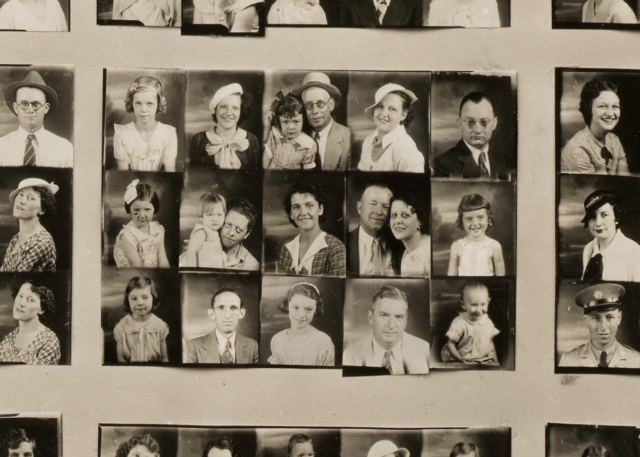
This thread goes deep in the culture: the assumption that there must be a kind of romance between father and daughter. The script of fathers and daughters has often looked like a contract, an agreement to mutually idolize. It has certainly been narrated this way culturally, from the virginity pledges associated with the Christian right in the U.S. — the Silver Ring Thing — to the romantic comedies that take as their starting point the rivalry between fathers and their daughters’ boyfriends. It is the incestuous romance we are encouraged to fantasize.
And though we shudder at incest, we routinely reinforce the idea that a daughter in some way wants to sleep with her father. The very phrase “daddy issues” both assumes and pushes away the idea that daughters desire their fathers. It is usually invoked to scorn or mock a woman’s choice of sexual partner, whether due to his age, looks, status, or power; the suggestion is that she has fallen for a man who is a version of her father. The phrase admits this as a possibility, while denying and deriding it.
In The Male Body, philosopher Susan Bordo’s exploration of masculinity told through a memoir of her father’s life, Bordo writes that, aged eighteen, her father’s sexual rage, jealousy, or protectiveness (what exactly does one call it?) left her “confused about what I admired and wanted in a man.” Her father had pounded on her bedroom door after she had dared to close it on her and a boy, threatening to knock it down if they did not come out.
It was embarrassing for a modern girl to have her father behave like a caveman. But these were the proofs of love my father offered, and they had an archetypal resonance that I couldn’t deny.
A father’s love is revealed in jealousy. But if there is a romance between father and daughter, however repressed, and however culturally determined, why are we so intent on it being the daughter’s romance? We are alert to the daughter’s daddy issues; what of the father’s daughter issues?
In the 1991 remake of Father of The Bride, a disheveled Steve Martin, sitting among the debris of a fairy-tale wedding — his daughter’s — speaks direct to camera. “I’m told,” he says, “that one day I’ll look back on all this with great affection and nostalgia. I hope so. You fathers will understand.” He then goes on to provide us with the classic script of heterosexual marriage, and of father-daughter relations:
You have a little girl. An adorable little girl who looks up to you in a way you could never have imagined. I remember how her little hand used to fit inside mine. How she used to love to sit on my lap and lean her head against my chest. She said I was her hero.
The girl is nonsexual, though her adoration of her father is intensely physical. She is little, cute, and vulnerable; and her devotion to her father is part of her appeal, part of what moves him so much.
Then the day comes when she wants to get her ears pierced. And wants you to drop her off a block before the movie theatre. Next thing you know she’s wearing eye shadow and high heels.
We are supposed to know what this means; we are meant immediately to understand and identify with this father’s horror at his daughter’s emerging sexuality, and at his waning ability to control it.
From that moment on you’re in a constant state of panic. You worry about her going out with the wrong kind of guys. The kind of guys who only want one thing. And you know exactly what that one thing is, because it’s the same thing you wanted when you were their age.
This father has gained distance from his earlier virile self, though he also identifies with it — and identifies with the younger man he is being displaced by. The daughter becomes the girl that he, once upon a time, was chasing.
Then she gets a little older, and you quit worrying about her meeting the wrong guy, and you worry about her meeting the right guy.
We’re supposed to feel impossibly moved by this moment, I think — moved by the realization that a father’s irrational, possessive, aggressive behavior, the behavior we intuit we’re going to see unfold, can in fact be explained by love. It was all about love! Le crime passionnel.
That’s the biggest fear of all because then you lose her. And before you know it, you’re sitting all alone in a big empty house, wearing rice on your tux, wondering what happened to your life.
His own wife has been written out of this fairy tale; she has become invisible, and the locus of sexual charge is the daughter, who figures as the perennially young woman a man is always chasing in his heart. The daughter’s own desires, her feelings and agency, are, of course, also obscured and displaced here. Her relationship is, after all, really all about her father. The daughter figures as a symbol of the father’s sexuality too; his life is coeval with his daughter’s innocence. Once that is gone, his life is over. Can a father not survive a girl’s entry into the sexual realm? As long as she is still oriented towards him, and as long as he is undisplaced by a lover, his sexual potency is still in play. Once she has turned away from him to another man, it is his sexual power that is placed in question.
After this speech, we go back in time to the daughter’s surprise engagement, and the ensuing action is jam-packed with the familiar tropes. The father is appalled by the news of the engagement: horrified, angry, jealous, unable to conceal his wounded sense of having been displaced. He acts comically badly towards the fiancé; when his daughter and the new man kiss, he rolls his eyes, while the mother whimpers in admiration. The father identifies as a jilted lover, while the mother identifies with a romantic girlhood. The audience is presumably meant to do the same, in line with their gender. Later in the film, Martin bitterly acknowledges that “my day has passed,” likening himself to “an old shoe, discontinued.”
But is the father’s horror at his daughter’s sexuality exactly that? Or is it a displaced horror at his own sexuality, his own desire? The commonness of sexual abuse of teens, and the ubiquity of the teen trope in pornography, would suggest that most men at least know what it’s like to desire a teenage girl. Is the father’s horror at his daughter’s sexuality perhaps a disavowed horror at his own susceptibility to it?
Since the de-contractualizing of marriage, the question of ownership of the daughter has taken on a romantic and sexual hue. Marriage is no longer an exchange of property, but the exchange of a desired love object. While it is still understood, consciously or unconsciously, as about ownership, the question of ownership is now overwhelmingly cast in the rosy light of love.
In Hollywood, a father’s sexual jealousy is always taken for granted. In Meet the Parents, Greg meets his new girlfriend Pam’s parents for the first time on the occasion of Pam’s sister’s wedding. They stay at Pam’s parents’ house. Robert De Niro plays Pam’s father, Jack, supposedly a retired florist who is really an ex-CIA operative. The set-up is classic: an alpha male father, competitive with — and hostile to — the new boyfriend, convinced no one is good enough for his daughter.
The entire family defers to monomaniacal father Jack, taking this rivalrous dynamic as a given. When Pam and Greg arrive at the house, and Pam detects her father’s immediate animosity, she says to him, with fond affection, “Be nice to this one, Dad, I like him.” The normalization of the father’s sexual jealousy, and his hostility to his replacement, are firmly established; we know in advance that things will go horribly wrong, and are being primed to both dread and long for the dénouement, with this casual, parenthetical admission that this is what fathers do. None of this disturbs us. Why?
A father, historically, protects a daughter — and to the extent that he protects her, it’s her value that he is protecting, as a piece of property to transfer. He is therefore the guardian of her virginity, her modesty, her shame. A father reluctantly lets her go into the world of men; suitors must travel via him, assuaging his worries about their intentions. The complicit resignation, the professed horror of the father at the potential caddishness of the suitor, have always struck me as shaded with pride, with a pleasure taken in identification and recognition. A father warns his daughter about men’s intentions, their shallowness and crudeness; a father thereby warns his daughter about himself, his past self, too. I am a man, I know what it is to be a man; I was like them, and now I must warn you about them. I am warning you about myself; be careful. The father is not, in fact, instructing the daughter in the woeful ways of men, but is addressing the audience in his pride about them.
In Sophie Mackintosh’s The Water Cure, three sisters, Lia, Grace, and Sky, live in a grand house bordered by water, with their pinched mother and revered father, known as King. Beyond their anxiously surveyed home, on the other side of a dangerous sea, is a world against whose infection and horrors the girls must be guarded. Mother and King orchestrate the girls in a series of protective rituals, designed to keep them healthy against the encroaching poisons of the world outside. There are breathing rituals; falling rituals; painful exercises in which Mother aims hard balls into the girls’ ankles; games of commanded cruelty: the daughters must drown a mouse, or burn a frog — though, at the last minute, when the frog has been thrown into the fire, Mother throws water over it and the frog hops out. For the girls, these are tests of love, obedience, and devotion; they are being asked, as the Biblical Abraham and Isaac were, to do and bear the unbearable. King is both Lear and Prospero in one; Prospero, orchestrating life and action on his apparent island, conducting the daughters in scream therapy with a conducting baton; Lear, exacting devotion from his daughters, putting them in a bind of demanded love.
The girls are trained in postures of abasement and gratitude (Lia gratefully takes “whatever contact I can get”), postures which have as their rationale the fortifying of the self against the cruelties of the world.
As I read The Water Cure, an ironizing phrase from Woolf’s A Room of One’s Own rang in my ears; it occurs when she describes being, as a mere woman, shooed officiously off the lawn in an Oxbridge college: “the gravel is the place for me.”
King, warning the girls of the men beyond the border,
spoke of perverse appetites. He spoke of bodies grown strong despite the toxic air … Men like that would break your arm without thinking. “Like this,” he had said, demonstrating on us, clasping both fists around each of our forearms in turn and making as if to snap. We felt the bone threaten to give, stayed calm. “And worse.”
The novel probes the violence inflicted on women in the name of their protection. But it probes something else too: fathers as a route into reality. For a long time, we are not sure if the fantasies of infection, of exposure and vulnerability in which the girls are trained, are true or not. Is this a fiction designed to keep the daughters close? The novel, in pressing this question, uncovers the dysfunctional power at the heart of the patriarchal family, the cult-like devotion that family can engender. And what happens when the father lies?
In The Water Cure, the father disappears — but his reach is long, and the novel charts the far-reaching effects of his patriarchal power. King never entirely disappears; his absence is never fully realized, in part because Mother does his work so well, and in part because patriarchy, like all power, is productive as well as repressive. King is the girls’ route into reality, but they find that this reality is a fiction. The toxicity they fear does not in fact exist in the form they were taught; it lies instead not just in the bodies of the men they were warned against, but in the family forms that ostensibly schooled them in it.
These girls move beyond attachment to the father, and beyond attachment to any man; they move beyond the Oedipus complex towards identification with one another, with their sisters, and towards the possibilities of rage, violence, and resistance. The final chapter culminates in narration in the voice of all three daughters. “There is something rising in us,” they say, “and I am glad.” There are intimations of violence here, faint tremors of Solanas’ Manifesto: “If SCUM ever strikes, it will be in the dark with a six-inch blade.” It will “coolly, furtively, stalk its prey and quietly move in for the kill.”


